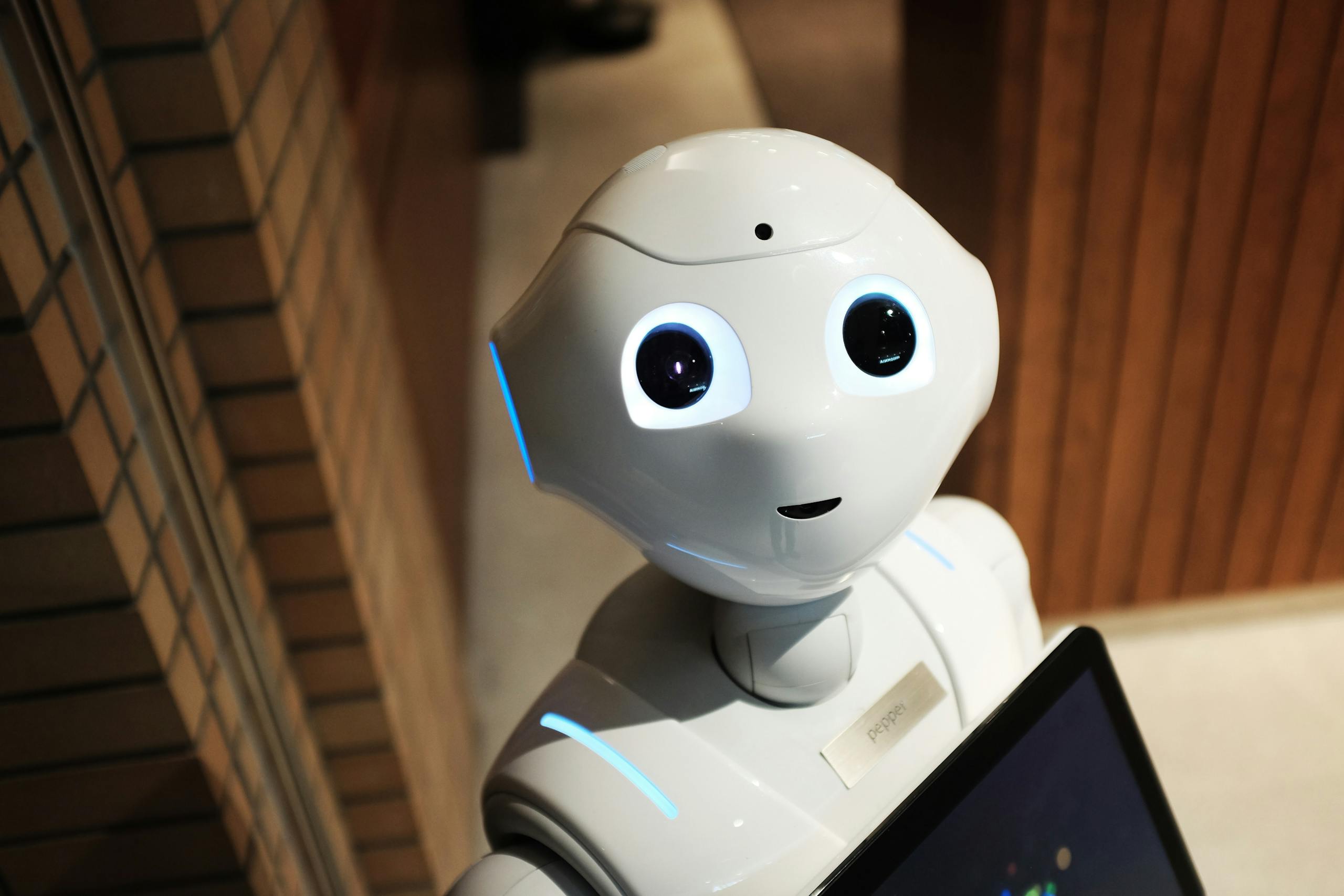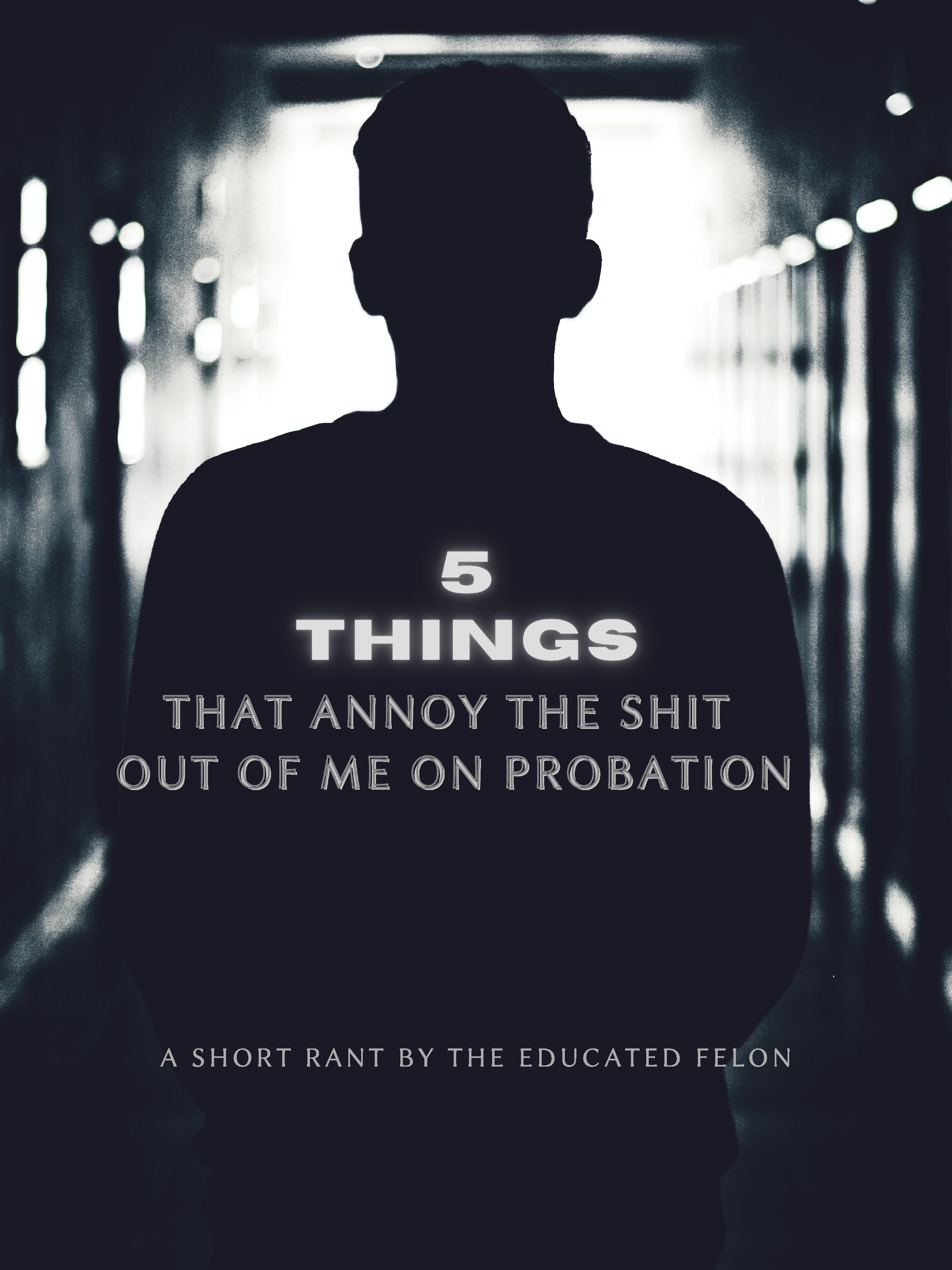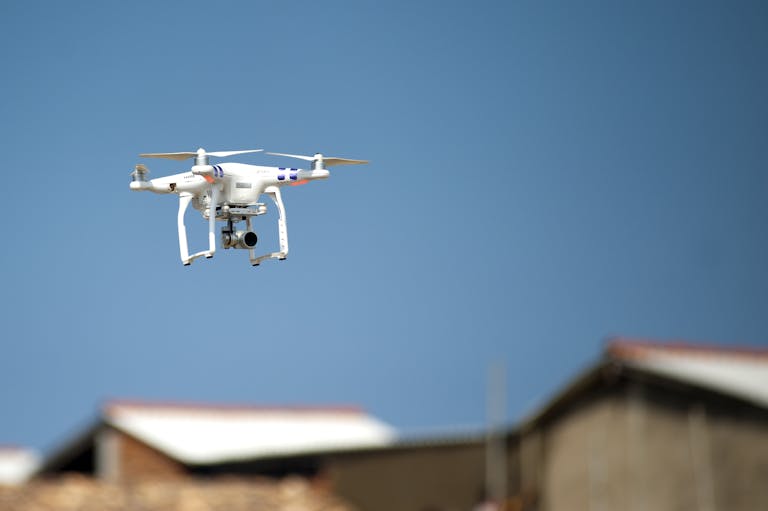AI Probation Officers: The Rise of Automated Supervision is Here
Discover how AI is transforming probation supervision in 2025. From robot check-ins to algorithmic decision-making, learn what the future holds for automated criminal justice supervision and the individual on probation.
Introduction
It’s Monday morning, and instead of meeting your Probation Officer (Officer Williams), you’re staring at a holographic interface named P.O.3000.
It doesn’t smile. It doesn’t laugh at any joke you make. It doesn’t care that traffic was bad. It doesn’t matter to it that you are “between jobs”. And it definitely won’t accept your bullshit as an excuse. At least Officer Williams did.
Welcome to 2025, where artificial intelligence is revolutionizing probation supervision. But before you start imagining a Terminator-style robot following you around with a clipboard, let’s explore what this brave new world of automated supervision really means for probationers.
| AI Supervision Reality Check in 2025 | |
| Departments using AI | 45% |
| Cost savings per case | 68% |
| False violation alerts | 28% |
| Required daily AI interactions | 8-12 |
| Human override requests | 34% |
The New Faces of Probation Supervision
Gone are the days of monthly office visits and casual check-ins. Today’s AI probation systems operate 24/7 through:
- Holographic check-in stations
- Voice-activated reporting kiosks
- Biometric verification systems
- Real-time GPS monitoring
- Emotional analysis software
- Behavioral prediction algorithms
“I miss my old Probation Officer,” admits James T., six months into AI supervision. “Sure, he was tough, but at least he understood when my car broke down. The AI system flagged me for a violation because I took an ‘unauthorized route’ walking to work instead.”
A Typical Day on Probation in the Future
6:00 AM: Your smart home speaker gently reminds you that your morning check-in is due. The AI system has already analyzed your sleep patterns through your required monitoring bracelet and notes you had a restless sleep – a potential stress indicator it will track.
7:00 AM: As you prepare for work, your mandatory morning check-in begins through your bathroom mirror’s integrated display. A quick facial scan, voice verification, and emotional analysis are completed while you brush your teeth. The system notes your stress levels are elevated but within acceptable parameters.
8:15 AM: Your commute to work is tracked in real-time. The AI notes you’ve stopped at a new coffee place – not on your usual route. It runs an instant analysis of the location against prohibited places and approved schedule deviations.
12:00 PM: Lunchtime check-in is automated through your phone. The system verifies your location at work, checks your financial transactions for the morning, and updates your compliance score. A quick emotional scan through your phone’s camera notes improved stress levels from the morning.
5:30 PM: Heading home, the system tracks your route and social interactions. It notes you spent 3 minutes talking to a neighbor – facial recognition confirms they’re not on any restricted contact lists.
7:00 PM: Evening report time. Your home’s AI interface conducts a comprehensive daily review: of schedule adherence, emotional state, social interactions, financial activities, and location history. The system generates your compliance score and sets parameters for tomorrow.
9:00 PM: Final daily check-in. The system confirms you’re home, updates your risk assessment, and sets your monitoring parameters for the night.
Maria R., under AI supervision for three months, shares: “It’s like having a super strict roommate who never sleeps. The system once flagged my heart rate elevation as ‘suspicious behavior’ – I was just doing yoga!”
The Technology and Lingo Behind the Badge
Neural Networks
Think of Neural Networks as digital brains that learn from experience – much like how a traditional probation officer gets better at their job over time. These AI systems study patterns in behavior, movement, and daily activities to understand what’s “normal” for each person under supervision. Just as you might notice if a friend is acting unusually, these networks detect when something doesn’t fit the usual pattern.
- Neural Networks in Action will:
- Learn your daily routines
- Spot unusual changes in behavior
- Predict potential violations
- Assess risk levels in real-time
- Adapt to your changing patterns
Machine Learning Algorithms
Machine Learning Algorithms are like highly detailed rule books that get smarter over time. Imagine a probation officer who remembers every single detail of every case they’ve ever handled – that’s what these algorithms do. They use this vast knowledge to make decisions about your supervision.
- Machine Learning Capabilities will:
- Analyze thousands of cases simultaneously
- Update risk assessments continuously
- Track rehabilitation progress
- Identify success patterns
- Adjust supervision levels automatically
Integration Systems
Integration Systems are the digital networking tools that connect all parts of your supervision. Think of them as the central nervous system of your probation experience, linking everything from court records to your GPS location. Integration systems:
- Sync with law enforcement records
- Connect with court databases instantly
- Verify employment in real-time
- Monitor financial transactions
- Track treatment program attendance
Dr. Sarah Chen, an Artificial Intelligence ethics researcher, explains: “These systems process more data in a day than a human officer could evaluate in a year. The question isn’t about capability – it’s about wisdom and understanding context.”
Privacy in the Age of AI and Drones
The privacy implications are staggering:
- Constant Behavioral Analysis
- Movement patterns
- Social interactions
- Emotional states
- Financial activities
- Data Collection
- Biometric readings
- Location History
- Communication logs
- Personal relationships
- Pattern Recognition
- Daily routines
- Habit formation
- Schedule deviations
- Social Connections
Tom Martinez, a privacy advocate, warns: “We’re creating digital probation officers with perfect memory and zero empathy. Every deviation from ‘normal’ becomes suspicious, even if it’s just having a bad day.”
The Human Cost
While AI supervision promises efficiency, the psychological impact is profound:
- Constant Awareness “Knowing you’re being watched by an algorithm that never sleeps changes you,” reports psychologist Dr. Rachel Wong. “People start living for the algorithm, not for rehabilitation.”
- Behavioral Modification Probationers report unconsciously altering normal behaviors to avoid triggering alerts:
- Taking the same routes daily
- Maintaining consistent schedules
- Limiting social interactions
- Avoiding spontaneous activities
- Family Impact “My kids have to understand why we can’t just go to the park on a whim,” explains Michael K., father of two. “Everything has to be pre-approved by the system.”
What to Expect in the Future for Someone on Probation
The future of probation supervision is heading toward complete automation, but what does this really mean for someone facing supervision?
Within the next five years, expect to see probation transform into an almost entirely digital experience. Traditional office visits will be replaced by holographic meetings, where AI systems can interview you from your living room, analyzing everything from your body language to your verbal responses.
Your smartphone will become your primary supervision tool, required to be with you at all times. It will act as a continuous monitoring device, checking your location, analyzing your voice patterns during calls, and even monitoring your social media activity for compliance. The days of scheduling appointments with human officers will be replaced by AI-driven systems that adjust your reporting requirements based on your real-time behavior and compliance scores.
Rehabilitation programs will become increasingly personalized, with AI systems designing custom treatment plans based on your specific patterns, risks, and progress. These programs will adapt in real-time, becoming more or less intensive based on your daily behavior and compliance data.
The most significant change will be the introduction of predictive supervision – AI systems that attempt to intervene before violations occur. Imagine receiving an alert warning you that your current behavior patterns suggest an increased risk of violation, along with specific recommendations to get back on track.
Privacy will become an even more precious commodity. Future probationers will need to accept that nearly every aspect of their lives will be monitored, analyzed, and scored by AI systems. This includes everything from their shopping habits to their sleep patterns, all feeding into a comprehensive compliance assessment.
Frequently Asked Questions
Q1: Can AI completely replace human probation officers?
Currently, AI systems supplement rather than replace human officers, but automation is increasing and is unavoidable.
Q2: How accurate are AI violation predictions?
Pretty damn accurate. Studies show 72% accuracy, with a 28% false positive rate requiring human review.
Q3: Can I appeal an AI decision?
Yes, all AI decisions can be appealed for human review within 48 hours.
Q4: Does AI supervision cost less?
Departments report a 68% cost reduction compared to traditional supervision. So yes, it is extremely cost-effective and is a no-brainer.
Q5: What happens if the system fails?
Backup protocols require immediate human officer intervention during system failures.
Q6: Can AI be biased?
Studies have shown potential bias in AI supervision systems, particularly regarding race and socioeconomic factors.
Q7: How is my data protected?
Encrypted storage and strict access protocols protect collected data, but privacy concerns remain.
Q9: Will AI officers show any flexibility?
AI systems are programmed with some contextual understanding but generally follow strict protocols. In other words, very unemotional.
Q10: Can I request a human officer instead?
Most jurisdictions require AI supervision when implemented, with human officers serving only as overseers.
Navigating the New Probation System
Success under AI supervision requires adaptation. Much like Darwin’s Theory of evolution, species must adapt over time to become better suited to their environments. Or perish. Therefore, a probationer (in the new age) must:
- Maintain Strict(er) Schedules
- Plan activities in advance
- Document schedule changes
- Keep consistent routines
- Request modifications early
- Document Everything (more)
- Save all system interactions
- Record technical issues
- Keep communication logs
- Track false alerts
- Understand the Algorithm
- Learn its trigger behaviors
- Know violation thresholds
- Understand the appeal processes
- Monitor compliance scores
Conclusion
The rise of AI probation officers represents more than technological advancement – it’s a fundamental shift in how society approaches supervision and rehabilitation. While promising increased efficiency and reduced costs, the human element of probation supervision is increasingly automated.
As we move forward, the challenge lies in balancing technological capability with human dignity. “The future of supervision is here,” notes criminal justice reformer Marcus Johnson, “but we must ensure it serves rehabilitation, not just surveillance.”
Remember: While AI officers don’t understand excuses, they also don’t hold grudges. Success under automated supervision requires understanding the system, maintaining documentation, and adapting to a new reality where algorithms, not humans, monitor your path to rehabilitation.
Understanding these coming changes in probation supervision highlights the importance of having proper legal representation that understands both traditional and AI-driven supervision systems.
Our trusted partner, LegalTech Defense Group, specializes in helping clients navigate the increasingly complex world of automated supervision. Their team of attorneys combines traditional legal expertise with deep knowledge of AI supervision systems, offering services including:
- AI supervision compliance consulting
- Violation defense and appeals
- Privacy rights protection
- Supervision modification requests
- Early termination petitions
Visit them to schedule a free consultation and learn how they can help you protect your rights in the age of automated supervision. Remember, while AI officers may be impersonal, having the right legal team in your corner can make all the difference in successfully completing your supervision term.






